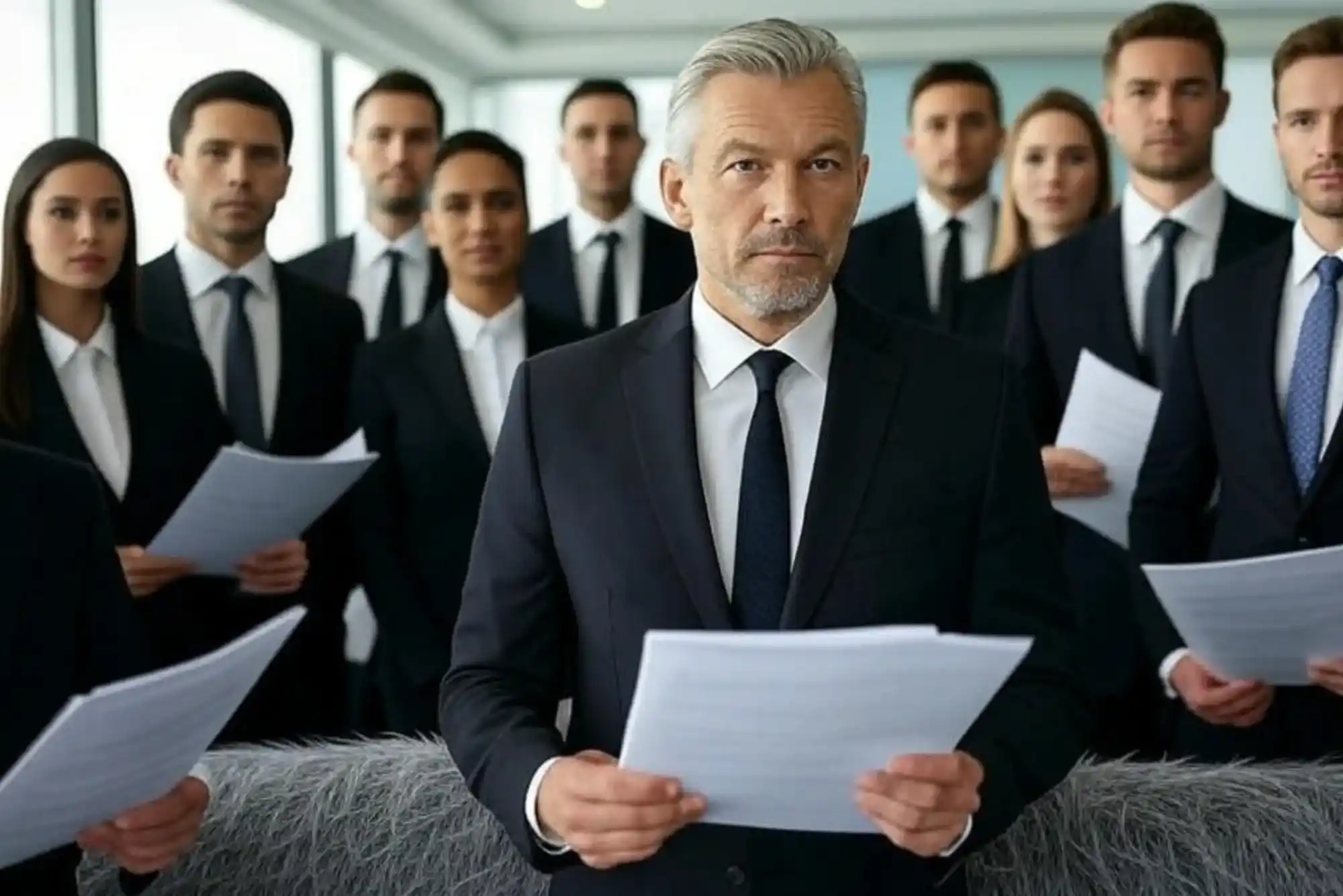In a city like Dubai—renowned for its strict legal frameworks and global visibility—criminal cases that attract public interest or involve influential individuals must be managed with utmost professionalism, precision, and confidentiality. The role of criminal defence lawyers becomes even more crucial when the stakes are high, reputations are on the line, and media attention intensifies. Employees, business professionals, and expatriates working in the UAE often find themselves curious about how such sensitive legal matters are handled behind closed doors. This article provides an in-depth look into how criminal lawyers in Dubai approach sensitive and high-profile cases within the boundaries of UAE law.
Understanding the Legal Landscape in Dubai
Before exploring the intricacies of managing high-profile cases, it’s important to understand the legal environment in which lawyers operate in Dubai. The UAE legal system is a hybrid model that draws from Islamic Sharia law and elements of civil law traditions. Dubai’s judicial structure comprises local courts and federal courts, with serious criminal matters often heard in higher courts due to their complexity and severity.
The legal code governing criminal cases is strict, and includes clear regulations for procedures, evidence, and conduct within courtrooms. In high-profile cases, this structure provides a clear yet demanding framework within which lawyers must work. The pressure to maintain compliance while strategically defending a client is significantly heightened.
Initial Case Assessment and Strategic Planning
Handling any criminal matter begins with a comprehensive assessment of the case details. In sensitive or high-profile situations, this step becomes more complex. Lawyers must quickly and discreetly gather all pertinent information from the client, including documentation, witness testimonies, and electronic evidence. The key is not just understanding what occurred, but also anticipating how the facts might be interpreted by the media, public, and authorities.
During this stage, criminal defence teams often develop a multi-layered strategy. This typically includes a legal plan focused on defending against the charges, a procedural approach to manage the case within the court system, and, where necessary, a media protocol to mitigate unwanted public attention. Lawyers ensure their clients are aware of their rights and are prepared for each phase of the case, which may involve police interviews, public scrutiny, and court appearances.
Maintaining Confidentiality and Discretion
Discretion is a defining characteristic of how criminal defence lawyers operate in Dubai, particularly in high-profile matters. The UAE places strong emphasis on privacy and reputation, and breaches of confidentiality can have legal as well as professional consequences.
To maintain discretion, lawyers often limit access to case files, use secure communication channels, and avoid any unnecessary exposure. In some instances, even internal communication within legal teams is compartmentalized to reduce the risk of leaks. This approach is critical not only to protect the client’s interests but also to preserve the integrity of the judicial process.
Moreover, lawyers frequently advise clients to refrain from discussing the case with anyone outside the legal team. In a city where digital footprints and casual conversations can quickly become evidence, this type of counsel is more than precaution—it’s a necessity.
Navigating Legal Procedures and Court Appearances
When managing sensitive cases, lawyers must exhibit a command of UAE criminal procedure. Each move must be calculated, timely, and legally justified. Pre-trial motions, plea submissions, and evidentiary disclosures must be handled with extreme care, especially when dealing with high-level allegations or public personalities.
In cases where the defendant holds a prominent social or professional status, the court may place additional procedural safeguards to prevent disruption or external influence. Lawyers must be prepared to respond to procedural requests from the judiciary, cooperate with law enforcement while safeguarding client rights, and manage appearances in court with the utmost professionalism.
Witness preparation, cross-examinations, and expert testimonies require a deeper level of scrutiny. Lawyers must anticipate the opposing arguments, prepare rebuttals grounded in law, and avoid theatrics or conduct that could be interpreted as contempt. The emphasis is always on factual precision, logical argumentation, and respect for the court’s authority.
Managing Media and Public Relations
Although criminal defence lawyers are not public relations professionals, managing the media narrative becomes an unavoidable part of handling high-profile cases. Unchecked speculation or misinformation can harm the client’s reputation and even affect the outcome of a case.
In Dubai, direct interaction with the media is heavily regulated, and lawyers are often restricted from making public comments about ongoing proceedings. As such, managing the media presence involves indirect strategies—such as advising clients to issue carefully worded statements through authorised channels or, more often, maintaining complete silence to avoid jeopardising the case.
The court’s view is rarely influenced by media coverage, but public opinion can place indirect pressure on the legal process. Lawyers, therefore, must be attuned to how the case is perceived in the community and develop strategies to protect their client from social and professional fallout.
Ethical and Cultural Sensitivity
Dubai’s diverse population and unique cultural expectations demand that criminal lawyers practice with a high degree of cultural sensitivity and ethical awareness. In sensitive cases—especially those involving expatriates, cross-border elements, or cultural taboos—lawyers must navigate legal nuances while remaining respectful of local values and customs.
This includes advising clients on appropriate courtroom attire, behaviour, and communication. It may also involve negotiating with authorities for discretionary measures such as private hearings, closed sessions, or redacted documentation to protect the identities of those involved.
Ethics remain a cornerstone throughout the process. Lawyers are bound by legal ethics that prohibit misrepresentation, ensure client loyalty, and require full transparency with the courts. Balancing these obligations while vigorously defending a high-profile client is one of the most demanding aspects of legal practice in Dubai.
Collaboration with Experts and International Coordination
In complex criminal cases, especially those involving technical matters or foreign jurisdictions, lawyers may work alongside forensic experts, international legal consultants, and subject matter specialists. These collaborations are critical to presenting accurate evidence, contesting specialised claims, or fulfilling international legal procedures such as extradition requests.
Coordination with embassies, translators, and foreign legal representatives is often required when the defendant is a foreign national. Lawyers must ensure that international communication does not breach UAE laws and that all parties involved are briefed on Dubai’s legal expectations.
Moreover, in financial crimes, cybercrimes, or regulatory offences, experts in accounting, technology, or compliance may be brought in to support the legal argument. The coordination is managed confidentially and always with court approval if the experts are to testify.
Emotional and Psychological Support for Clients
Clients involved in high-profile criminal cases experience significant emotional and psychological stress. The impact on their personal life, family, and career can be overwhelming. Lawyers must sometimes go beyond legal support to offer structured guidance, helping clients remain calm, cooperative, and resilient during the legal process.
This may include recommending professional counselling or facilitating discreet support from family and associates. Lawyers also help clients manage expectations, understand possible outcomes, and stay focused on the legal strategy rather than being influenced by public noise or personal anxiety.
Courtroom Advocacy and Final Judgement
When the case proceeds to trial, courtroom advocacy becomes the central role of the defence team. Every piece of evidence, each witness statement, and every legal argument must be presented with clarity and conviction. Lawyers must be persuasive yet respectful, assertive yet restrained. The objective is to challenge the prosecution’s claims without undermining the decorum of the court.
In high-profile matters, the court may apply stricter scrutiny to both sides. Lawyers must be exceptionally prepared, ensuring that the defence rests on solid legal principles and documented evidence. A successful outcome depends not only on innocence or guilt but also on how convincingly the case is argued within the framework of UAE law.
After the judgement, whether favourable or not, lawyers continue to play a role in managing the implications. This may involve filing appeals, seeking sentence reductions, or advising on post-trial procedures. The conclusion of a high-profile case often marks the beginning of a long-term process of rehabilitation or legal follow-up.
Conclusion
Sensitive and high-profile criminal cases in Dubai require more than just legal knowledge—they demand a comprehensive strategy that respects legal boundaries, maintains discretion, and protects client dignity. From initial case review to final judgement, criminal lawyers in Dubai play a pivotal role in navigating the intricate challenges these cases present. They act not only as defenders but also as protectors of rights, advisors in crisis, and stewards of justice within a demanding legal system. By blending rigorous preparation with ethical advocacy, they ensure that justice is served with both fairness and professionalism, no matter how high the profile of the case may be.








